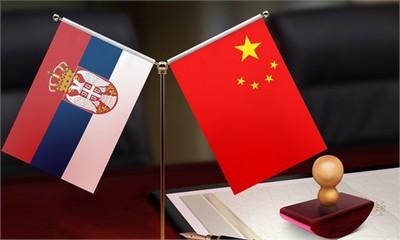
US’ tariff gamble brings Global South closer
Leonardo Attuch
The 50-percent tariff hike imposed by the Trump administration on Brazilian products signals more than a trade dispute: It exposes the erosion of US hegemony and accelerates the consolidation of a multipolar world. By trying to isolate and punish strategic partners in the Global South, the US achieves the exact opposite effect – bringing emerging economies closer together and strengthening cooperation mechanisms that reduce dependence on Washington.
This tariff shock is not occurring in a vacuum. For decades, the US cultivated an aura of reliability and soft power in Brazil, projecting itself as a model and a partner. But recent actions have shifted this perception. Beyond the tariffs, unilateral decisions such as attempts to apply the Magnitsky Act against Supreme Court Justice Alexandre de Moraes have been interpreted as diplomatic hostility and an affront to Brazilian sovereignty. Online discussions, street debates and the media landscape all reveal the same trend: When Brazil feels disrespected by Washington, national pride resurges across party lines.
While the US closes its market, China is, as always, deepening ties with Brazil. The coffee case is emblematic. As the White House raises barriers against one of Brazil’s most iconic agricultural exports, Beijing has approved 183 new Brazilian companies to sell coffee to the Chinese market. This is not just a commercial transaction but a strategic gesture: if Washington builds walls, Beijing builds bridges.
The cooperation goes far beyond coffee. Chinese capital is flowing into Brazilian infrastructure, energy, railways, ports and manufacturing. These investments are structural and long-term, embedding Brazil more firmly into the architecture of South-South cooperation. Each new project makes Brazil less vulnerable to US political swings and tariff shocks, while signaling to other emerging economies that diversification is a path to sovereignty.

During his phone call on Wednesday with Celso Amorim, chief advisor to the president of Brazil, Wang Yi, a member of the Political Bureau of the Communist Party of China Central Committee and director of the Office of the Central Commission for Foreign Affairs, said that China is willing to work with Brazil to deepen bilateral cooperation and leverage the stability and complementarity of their cooperation to effectively offset external uncertainties. He also stressed that China firmly supports Brazil in defending its right to development and opposing the bullying practices of arbitrary tariffs.
The US’ tariff war is also a lesson for the entire Global South. The aggressive use of tariffs and sanctions has made it clear that the US is willing to weaponize both trade and finance to impose its will. This realization has accelerated collective efforts to create alternatives: from the BRICS’ push for de-dollarization to the strengthening of regional financial arrangements and bilateral trade in local currencies.
In this context, Brazil emerges as a key multipolar actor – a founding BRICS member and an agricultural, environmental and energy powerhouse. The country is finding space to grow, diversify exports, and strengthen strategic autonomy in alignment with fellow emerging economies. Also on Wednesday, in an interview with Reuters, Brazilian President Luiz Inacio Lula da Silva revealed plans to call the leaders of China and India to discuss a joint BRICS response to US tariffs. “I’m going to try to discuss with them about how each one is doing in this situation, what the implications are for each country, so we can make a decision,” he was quoted as saying in the Reuters’ report. “It’s important to remember that the BRICS have 10 countries at the G20,” he added.
Every unilateral US measure only reinforces the perception that the unipolar era is ending, as countries of the Global South are less willing to tolerate economic coercion. The message of this tariff shock is clear: Brazil grows stronger when it acts with pragmatism and sovereignty. The US closes doors, China opens windows, and the winds of history are blowing toward multipolarity. The more Washington tries to enforce old hierarchies, the faster the new world order takes shape – one where the Global South is no longer a spectator but an architect of its own destiny.
The writer is editor-in-chief of Brasil 247, a Brazilian news and political analysis website
